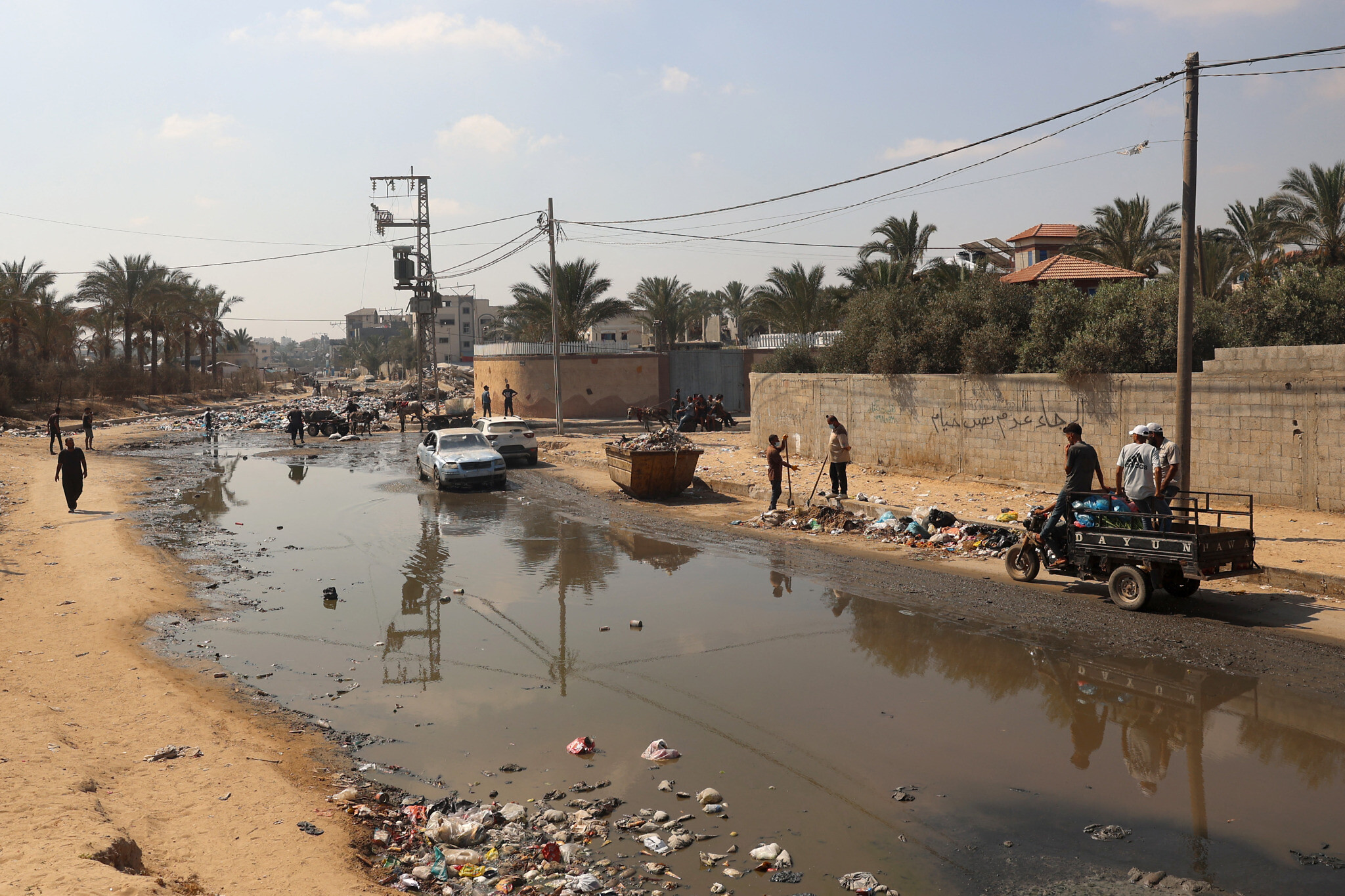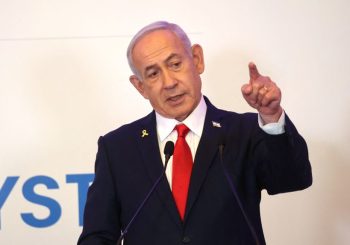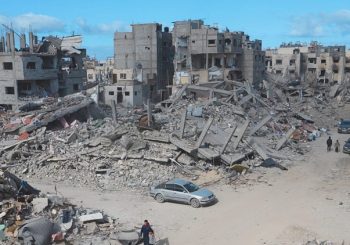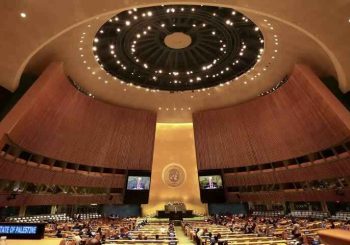Traces of the highly infectious Type 2 poliovirus, often transmitted through fecal matter, were found by the World Health Organization (WHO) on 16 July in six samples of sewage water in Palestine’s Khan Younis and Deir al-Balah.
Collected in late June, the samples indicate the poliovirus may be circulating in the region, prompting WHO to express profound concern over an outbreak potential.
In a clinic in Al-Zawayda, a small town in central Gaza Strip, the sound of wailing infants fills the air as parents navigate a relentless line for vaccinations. Amid the controlled chaos, a small boy is weighed and then readied for his immunizations. His cries pierce the hall as the needle meets his arm, followed by another shot in his thigh, with his mother offering a soothing presence.
“Now my son […] is vaccinated,” his worried father said.
The identified strain of poliovirus in Gaza is vaccine-derived, meaning it originated from the weakened virus used in the oral polio vaccine (OPV). This strain can, in rare cases, mutate and spread, especially in populations with low immunity. While weakened, it remains capable of transmitting from one child to another in regions with insufficient vaccination coverage.
Polio is a highly infectious virus that targets the nervous system, causing paralysis within hours. It spreads primarily through contaminated food, water, or contact with infected individuals. Initial symptoms include fever, fatigue, headache, vomiting, neck stiffness, and limb pain. One in 200 cases results in irreversible paralysis, often in the legs, and 5 to 10 percent of those paralyzed die as their breathing muscles become immobilized. While it mainly affects children under five, unvaccinated individuals of any age are at risk.
This is not the first time that a mutated variant of poliovirus has been detected in the Middle East. In 2017, Syria experienced a devastating outbreak of a mutated strain of the poliovirus, which led to the paralysis of 74 children. Similarly, in East Africa, Somalia, the protracted civil war has perpetuated an ongoing chain of variant poliovirus transmission that has remained unbroken since 2017, marking the longest continuous outbreak of its kind globally.
WHO has previously reported high immunization rates in Gaza and the occupied West Bank, with coverage reaching 99 percent in 2022. However, recent figures indicate a concerning decline to 89 percent last year.
The war in Gaza, and the worsening living conditions, have disrupted routine immunization programs in Gaza, WHO stated. Additionally, barriers to vaccination include “lack of security, access obstruction, constant population displacement, shortages of medical supplies, poor quality of water and weakened sanitation,” according to WHO.
Moreover, the United Nations (UN) attributes this drop to the severe impact of the ongoing conflict on Gaza’s healthcare system, as only 16 of the region’s 36 hospitals are partially operational, exacerbating the crisis.
“There is a high risk of spreading of the circulating vaccine-derived poliovirus in Gaza, not only because of the detection but because of the very dire situation with the water sanitation,” Ayadil Saparbekov, head of the WHO’s team in the Palestinian territories, said.
As of 23 July, a risk assessment was being implemented and health workers were providing protection advice to Gaza’s 2.3 million population, according to Saparbekov.
He painted a grim picture of the enclave’s sanitary conditions, noting that many residents are confined to shelters where a single toilet serves 600 individuals, and access to safe drinking water remains severely limited.
“With perhaps one and a half to two liters of water per person per day, they will definitely not be able to follow the recommendations that we will be providing,” he added.
WHO has announced, on 8 August, plans to dispatch around 1 million doses of polio vaccine to Gaza. The urgent vaccination campaign aims to immunize 600,000 children under the age of eight in a two-phase initiative, set to commence on 17 August.
According to Gaza’s health authority, Gaza is a “polio epidemic zone,” attributing the virus’s presence to ongoing Israeli military operations and the consequent destruction of health infrastructure. Meanwhile, on 21 July, the Israeli military said that it had begun a vaccination program for soldiers operating in Gaza, to prevent the disease from spreading to Israel.
“While no cases of polio have been recorded yet, without immediate action, it is just a matter of time before it reaches the thousands of children who have been left unprotected,” WHO’s Director-General, Tedros Adhanom Ghebreyesus, cautioned.
Vaccinations for Palestinians will be administered in the upcoming weeks to protect children from falling ill with the disease. However, the ongoing crisis underscores a more profound challenge: without an urgent ceasefire and a significant ramp-up in humanitarian aid, especially a targeted vaccination initiative for young children, Gaza’s residents will continue to suffer and die from preventable diseases and treatable injuries.







Comments (0)